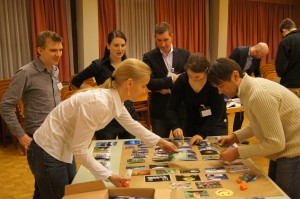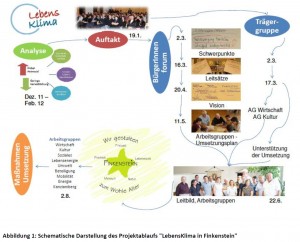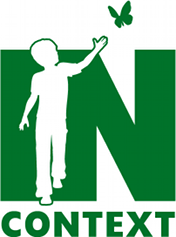Setting of the pilot project
The pilot study in Austria is conducted in the village Finkenstein am Faaker See, which is situated on the border to Slovenia and Italy. About 8.500 people live in Finkenstein - distributed within 28 villages and settlements. Most of the working population commutes out of Finkenstein, mainly to Villach, a town located nearby.
Finkenstein itself is characterised by two main economic sectors: tourism and (small) industry. Tourism has been declining lately - from more than 1 Mio to about 600.000 overnight stays per year. Currently, the European Bike Week is one of the highlights of the touristic season, which attracts tens of thousands of motorbike fans.
Major topics in the community
The Community Arena process brought up the issues most important to Finkenstein: The decentralized structure, the dominant role of Villach for everyday life, the relatively low participation of immigrants from other Carinthian communities and young people in community activities and how to organise social life given these circumstances. Furthermore the historic issue on rights of the Slovenian minority played a role in the discussion, albeit a minor one. During the community arena process a big variety of topics of interest have been addressed: Environment, energy and mobility; tourism, economy, agriculture and local products; social topics and citizenship; politics, participation and regional development.
Community Arena process
 The focus of the process has been laid on vision building. In the first four meetings of the Community Arena a common vision has been developed. The words used to formulate the vision represent some of the values central to the Community Arena members: freedom, joy, love of life, people and nature. The overall slogan is "We shape FinkensteRn for the benefit of all". This reflects the citizens' wish for participation; well-being as a common individual and collective goal; social and environmental sustainability; and economic sustainability as a prerequisite for freedom. The vision and core statements were the basis for developing pathways towards a sustainable future in Finkenstein ("Finkenstein 2030"). Finkenstein 2030 was elaborated among other techniques in theater plays and interviews. The ongoing work to turn the vision into a reality is currently done in nine different thematic working groups (e.g. "Sustainable Economy", "Social Life", "Environment and Sustainability", "Culture"), involving about 50 citizens as well as local politicians and entrepreneurs.
The focus of the process has been laid on vision building. In the first four meetings of the Community Arena a common vision has been developed. The words used to formulate the vision represent some of the values central to the Community Arena members: freedom, joy, love of life, people and nature. The overall slogan is "We shape FinkensteRn for the benefit of all". This reflects the citizens' wish for participation; well-being as a common individual and collective goal; social and environmental sustainability; and economic sustainability as a prerequisite for freedom. The vision and core statements were the basis for developing pathways towards a sustainable future in Finkenstein ("Finkenstein 2030"). Finkenstein 2030 was elaborated among other techniques in theater plays and interviews. The ongoing work to turn the vision into a reality is currently done in nine different thematic working groups (e.g. "Sustainable Economy", "Social Life", "Environment and Sustainability", "Culture"), involving about 50 citizens as well as local politicians and entrepreneurs.
The pilot project in Finkenstein is conducted by SERI - Sustainable Europe Research Institute. For further information please contact us.
Links
Project website (in German) see: http://lebensklima.at/finkenstein/.
Finkenstein in the press, click here.
